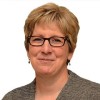“We do not learn from experiences…we learn from reflecting on experiences.” -John Dewey
Perhaps it is because as educators we are flooded with “end of the year” events like final concerts, awards convocations, sports championships, and spring dances at this time of year, but reflection has certainly been on my mind lately. It is also far more personal, as it seems everything in education is for me, with the graduation of my eldest child from high school. I seem to spend every spare moment putting together memory books (realizing that it would have been far smarter to be doing that all along the way!) and the traditional photo slide show of his life and school career for the past years.
I spent a recent Saturday in the throes of every emotion possible selecting photographs only to discover that many years worth of digital photographs appeared to have been lost in a recent crash of our home computer. The ironic part was that I could see these thumbnail versions of the pictures, but not the actual files. The small versions still caused me have a flood of memories at various events, trips, and holidays. I also realized that just because I didn’t have a photo, does not mean that it did not happen. This seems particularly relevant in a world when nothing seems to be real unless it is recorded and shared with others. My reflection on those events was what mattered. (Happily, I can report that we have managed to save almost all of those files we feared were lost, which explains why I am feeling more calm about it all!)
In the crush of our fast-paced world in education, reflection seems to be a luxury or at best something left until the very end. This is far too powerful of a practice to be left to chance, both for us and for our students. One of the best ways that we can leverage reflection is through our shared collaboration with our colleagues. Professional learning communities can help us think and reflect together about what worked and what did not and most importantly why. Many of the finest educators I have ever encountered were reluctant to share their practices, not because they were did not want to collaborate but simply because they truly believed that everybody did things like they did. The formalized practices of collaboration and reflection in our PLCs helped them learn from their colleagues and vice versa. The opportunity for a shared reflection on the learning of students created an opportunity to look backward in order to move forward, which can have the most impact on student learning. (DuFour, 2015).
We should also encourage students to engage in formalized reflection on their own learning. I first encountered this through work as a teacher with creating portfolios of student work. Students would be amazed to see their written pieces from the early part of the year and how far they had come. I did not ask particularly sophisticated questions but I certainly saw them recognize their own growth and demonstrate pride in their improvement. Since those days, more and more research has shown the value of self-reflection and self-assessment for students throughout the learning process. As educators, we should be asking students to engage in thoughtful reflection in order to help them learn more in the future.
The challenge of course, is time. While it is natural to be reflective at the end of a school year, we need to find ways to make this be a natural part of the learning process. Students should not have to wait to experience reflection until something concludes. Our work in collaborative Professional Learning Communities has shown us how valuable it is to our professional knowledge and practices. We need to find opportunities for our students throughout the learning process to experience the same things, both individually and with others.
So, enjoy those reflective moments that you are likely experiencing or will be soon. (I know that I am trying to do that. I’m also looking for new ways to backup those prized photos!) There are celebrations to enjoy and there are also opportunities for growth. One of those will be finding ways to make those reflections a more frequent part of the educational calendar, rather than just at the end of it. We all strive to be experts in our fields and certainly want the same for our students. “Expertise does not come naturally. Developing a skill takes time, effort, energy and a hefty dose of self-reflection.” (Hall and Simerall, 2015)
Dewey Quote: https://www.goodreads.com/author/quotes/42738.John_Dewey. Retrieved 5.8.2016
DuFour, Richard. In Praise of American Educators. Bloomington, IN: Solution Tree, 2015.
Hall, Pete and Alisa Simeral, Teach Reflect Learn. Alexandria, VA: ASCD, 2015


What a simply wonderful blog post. I really connected with it on many levels (including the graduation of an eldest child and the frantic desire to capture those memories somehow!) Reflection is vital and it leads to greater empathy, balance, celebration, and connection. It is one of our most human qualities and we have to find time for it each and every day.